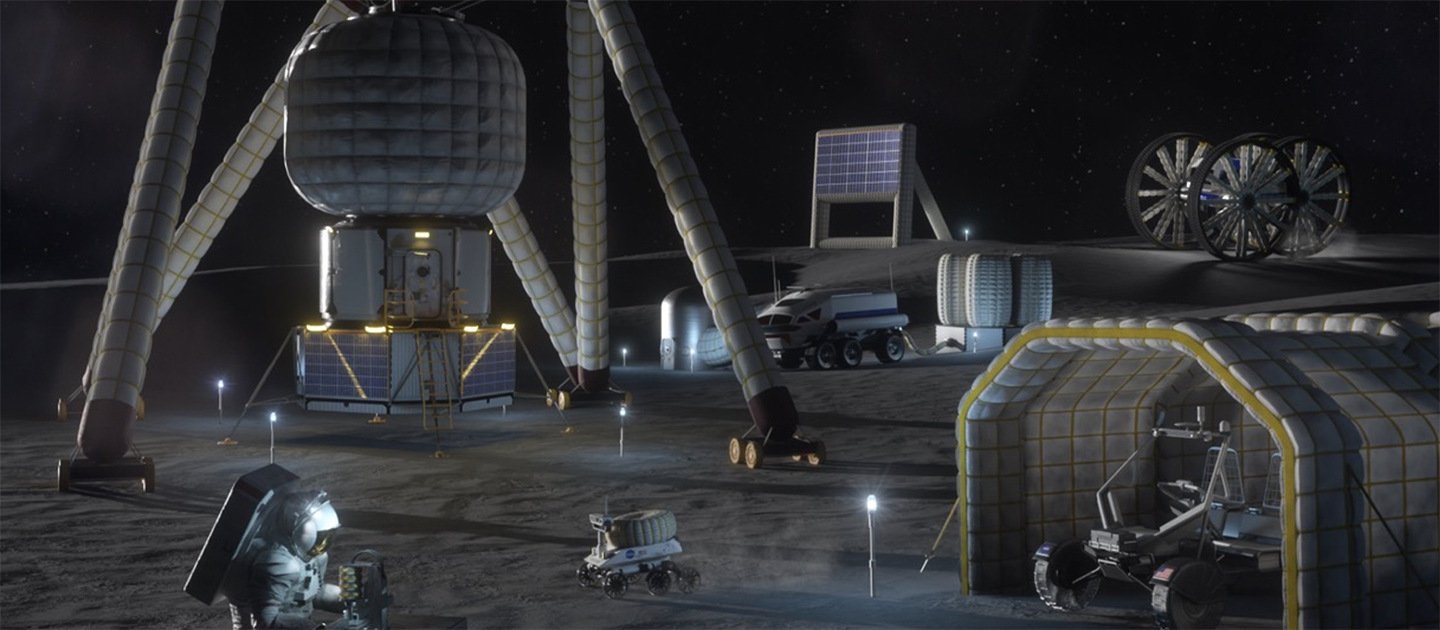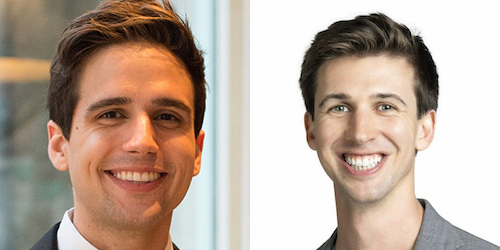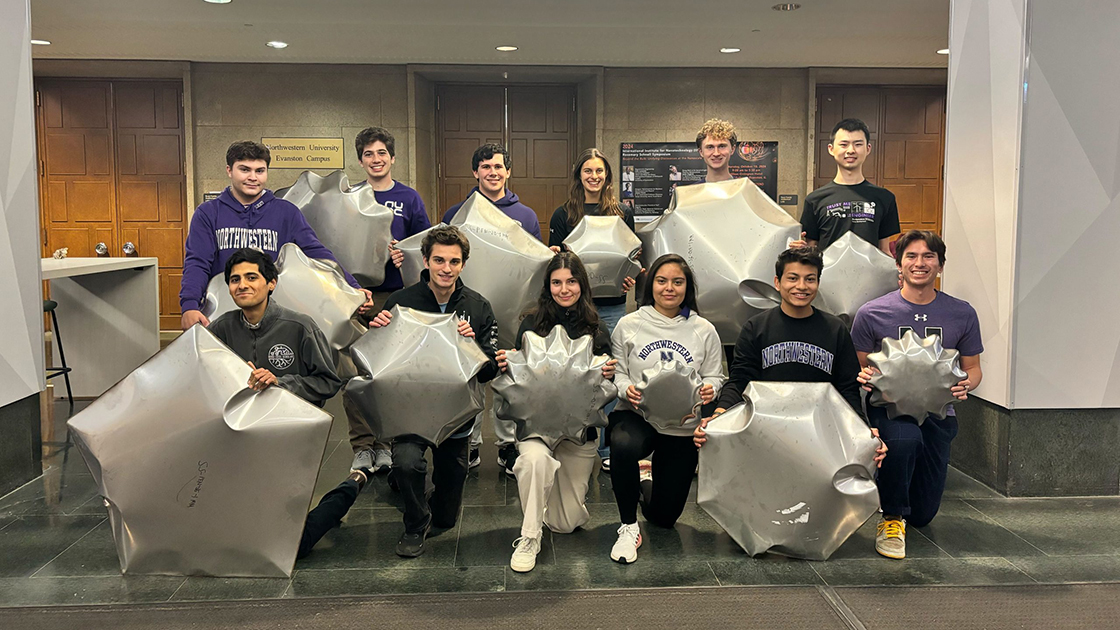 Honors and Awards
Honors and AwardsNorthwestern Student Team Wins Highest Honor at NASA BIG Idea Challenge
The student group explored expandable technology for lunar structures

A team including 25 Northwestern Engineering students took the highest honor at NASA’s 2024 annual Breakthrough, Innovative, and Game-Changing (BIG) Idea Challenge forum.
On November 12 in Las Vegas, the interdisciplinary group claimed the Artemis Award —given to the team whose concept has the best potential to contribute to NASA’s future Artemis moon missions — for its proposal “METALS: Metallic Expandable Technology for Artemis Lunar Structures.” The team was managed by student leads Trevor Abbott (mechanical engineering), Julian Rocher (mechanical engineering), and Ben Taalman (materials science and engineering), with Victoria Israel (mechanical engineering) and Gavin Chung (mechanical engineering) serving as interim team leads, and advised by Ian McCue, Morris E. Fine Junior Professor in Materials and Manufacturing, and Ryan Truby, June and Donald Brewer Junior Professor.

This year’s theme — “Inflatable Systems for Lunar Operations” — required teams of undergraduates, graduate students, and their faculty advisers to go beyond inflatable habitats, and instead explore innovative concepts incorporating inflatable components such as deployable towers, soft robotics, low-mass cranes and gantries, large antennas and solar reflectors, and emergency shelters.
The Northwestern team proposed a metal inflatable system made by laser-welding stacked layers of sheet metal along their aligned edges. Once on the lunar surface, pressurization would deploy gantries, solar towers, and other structures from rolled, folded, or origami-like stowed configurations.
"Winning the prestigious Artemis Award is such an incredible experience. It was also one of the biggest challenges many of us have ever completed,” Abbott said. “When we first came up with this crazy idea, we didn't necessarily know what to expect. But we developed the mindset that if anyone was going to figure it out, it was going to be us. Although we were certainly a young team, this attitude pushed us to be our best selves and deliver a technology to NASA that 'redefines the word inflatable.'”
The Northwestern team’s concept would help a sustained human lunar presence build the required infrastructure to survive by safely packing equipment that would need to be stored within the volume constraints of lunar landers and deployed to far larger form factors on the lunar surface. The metal-based inflatables could be plastically deformed from their stowed configuration to deploy large-scale inflatables, maintaining form and function even when internal pressurization is lost.
This system utilizes the superior resistance of metal against lunar dust abrasion, micrometeorites, radiation degradation, gas permeability, and temperature extremes to provide significant advancements in reliability and longevity compared to traditional polymer-based inflatable concepts.
“I truly believe that in one way or another, metal inflatable technology will be on the Moon someday,” Abbott said. “When it finally does reach its final lunar destination, it will be a testament to the creativity and ingenuity that this team had.”
Along with Abbott, Rocher, Taalman, Israel, and Chung, the team included students from the following Northwestern Engineering departments:
Chemical and Biological Engineering: Luke Fahrney
Computer Science: Oscar Depp (BS/MS, also studying engineering sciences and applied mathematics), Mingyuan Wang (Integrated Science Program)
Electrical and Computer Engineering: Devan Chanda, Bobby Cloninger, Omar Kamil, Enrique Montemayor
Industrial Engineering and Management Sciences: Luis Diaz
Materials Science and Engineering: Tareq Mufarech, Liam Warlick
Mechanical Engineering: Michael Bayer, Ty Bennett, Xitlalli Castaneda, Serena Frolli, Charlize Guillen, Spencer Guy, Sebastian Merce (also MaDE, economics), Joshua Natelson, Rahat Patel, Justin Chang Stauffer, Jose Andres Vergara
"I want to give a special thank you to Julian Rocher, Ben Taalman, Victoria Israel, and Gavin Chung for also leading the project, to our advisers Ian McCue and Ryan Truby, and to McCormick and NUSTARS for making this all possible,” Abbott said. “Additionally, thank you to our sponsors IMS Engineered Products and National Aerospace Corporation for their support. This was the ultimate team effort, and together, we won brought the coveted Artemis Award home."



